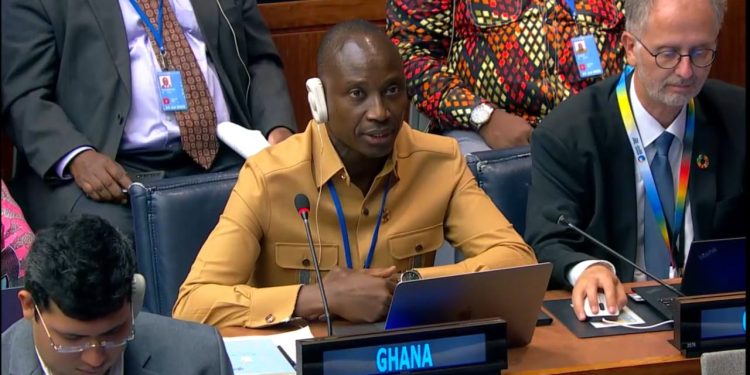Ghana’s Unemployment Rate at 14.7%, Youth Joblessness Tops 25% – Government Statistician Tells UN Forum
Government Statistician, Dr. Alhassan Iddrisu, has disclosed that Ghana’s unemployment rate remains elevated at 14.7%, with youth joblessness surpassing 25%.
Speaking at the United Nations High-Level Political Forum on Sustainable Development in New York on Wednesday, July 16, Dr. Iddrisu described the labour market challenge as more than a jobs gap, calling it a “dignity gap” that undermines inclusive economic growth.
Delivering Ghana’s national statement on SDG 8, which talks about Decent Work and Economic Growth, Dr. Iddrisu revealed that over 70% of the country’s labour force, predominantly women and young people, remains trapped in the informal sector.
He stressed the urgency of coordinated action to address employment vulnerabilities and ensure equitable access to economic opportunities.
“In response, Ghana is rolling out the ResetGhana Agenda, a comprehensive strategy to expand opportunities and protect the vulnerable,” Dr. Iddrisu stated.
The ResetGhana Agenda, he noted, includes four flagship initiatives:
The 24-Hour Economy aimed at generating employment beyond traditional working hours;
The Big Push Programme which is a US$10 billion infrastructure investment drive;
The 1 Million Coders Initiative which seeks to train one million youth in digital skills; and
The Gold Board designed to formalise small-scale mining and boost foreign exchange inflows.
In a marked policy shift, the Government Statistician noted that job creation has been integrated into the objectives of Ghana’s monetary policy framework through the Bank of Ghana.
Dr. Iddrisu further underscored the centrality of data to policy delivery, highlighting the production of quarterly labour statistics since 2022 and the upcoming launch of a national survey on skills mismatches aimed at better aligning workforce training with market demand.
“Our compass for this transformation is data,” he emphasised. “If we are serious about SDG 8, data must be treated as core infrastructure essential to recovery and not incidental to it.”
He concluded with a call to global and national stakeholders saying, “Let us act and not just commit in these final five years. The future of work and the dignity of workers depend on this action.”








